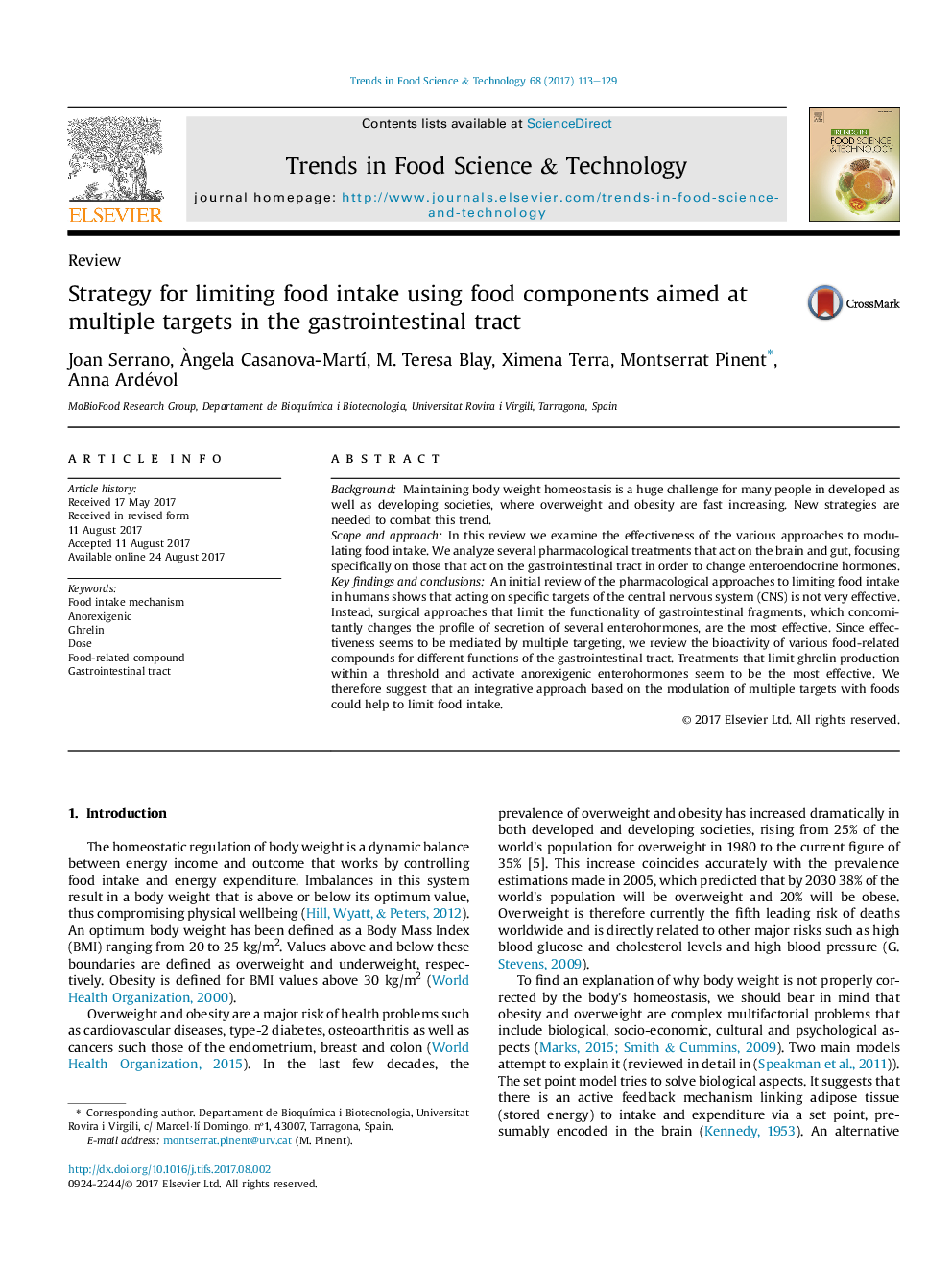| Article ID | Journal | Published Year | Pages | File Type |
|---|---|---|---|---|
| 5523629 | Trends in Food Science & Technology | 2017 | 17 Pages |
â¢Drugs directed at specific targets of the central nervous system (CNS) are not very effective.â¢Surgical limitation of gastrointestinal fragments, which concomitantly changes enterohormone secretions are the most effective.â¢Effectiveness at limiting food intake seems to be mediated by multiple targeting.â¢Treatments that limit ghrelin within a threshold and activate anorexigenic enterohormones seem to be the most effective.â¢An integrative approach based on the modulation of multiple targets with foods could help to limit food intake.
BackgroundMaintaining body weight homeostasis is a huge challenge for many people in developed as well as developing societies, where overweight and obesity are fast increasing. New strategies are needed to combat this trend.Scope and approachIn this review we examine the effectiveness of the various approaches to modulating food intake. We analyze several pharmacological treatments that act on the brain and gut, focusing specifically on those that act on the gastrointestinal tract in order to change enteroendocrine hormones.Key findings and conclusionsAn initial review of the pharmacological approaches to limiting food intake in humans shows that acting on specific targets of the central nervous system (CNS) is not very effective. Instead, surgical approaches that limit the functionality of gastrointestinal fragments, which concomitantly changes the profile of secretion of several enterohormones, are the most effective. Since effectiveness seems to be mediated by multiple targeting, we review the bioactivity of various food-related compounds for different functions of the gastrointestinal tract. Treatments that limit ghrelin production within a threshold and activate anorexigenic enterohormones seem to be the most effective. We therefore suggest that an integrative approach based on the modulation of multiple targets with foods could help to limit food intake.
